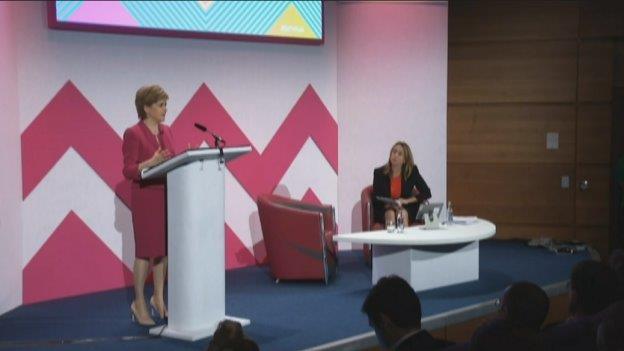BBC to review news service in Scotland, boss Tony Hall tells MSPs
- Published
Tony Hall said that the BBC needed to answer the question: "Have we got the balance right?"
The BBC will review its news service in Scotland, the boss of the corporation has told a committee of MSPs.
In his opening statement, Tony Hall said that, in the light of increased devolution to the nations of the UK, it was "time to make changes".
The broadcasting boss is giving evidence to Holyrood's education and culture committee.
The BBC Charter, which outlines the public purposes of the corporation, expires at the end of 2016.
Lord Hall appeared before the committee alongside the head of BBC Scotland, Ken MacQuarrie, and finance director Anne Bulford.
He said the review of the delivery of news on TV, radio and online would report in the spring.
The BBC in Scotland
What is raised and what is spent?
£323m
Licence fee generated in Scotland
-
£123m - Scottish-only output spend
-
£82m - Scottish-made network output
-
£132.5m - UK programmes and services available to Scotland
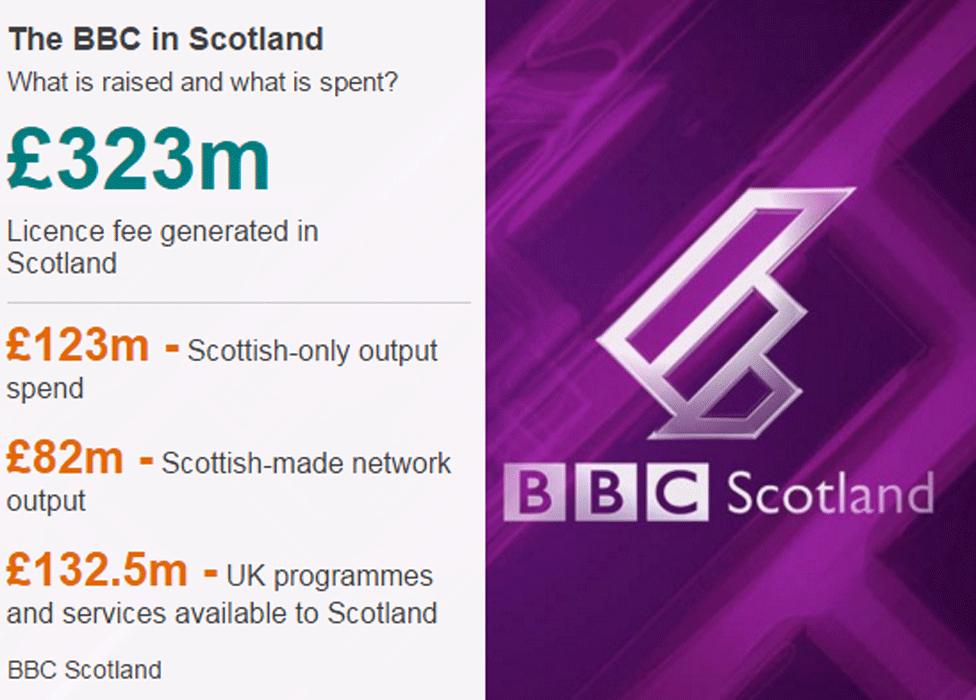
Lord Hall said: "The BBC's principle has been neither to lead nor to lag in devolution. But now is the right time to say are we getting it right and do we need to change the balance?
"My own view is that this is the time now to make a change.
"So, we are looking at a review of news which will report in the spring - this is looking at the provision news across TV, radio and also online and of course in that there will be a debate about what has become known as the 'Scottish Six O'Clock news'.
"But I want to make sure that the discussion is about the totality of our services as well, and it looks to the future. When you look at people consuming news not just in the traditional and important ways in terms of our main services, but it is also in things like mobile, online and so on, and we want to make sure those are match fit as well."
He also told the committee that;
Scotland should have a "strong and vibrant BBC Scotland"
it was right that the Scottish Parliament played a part in the charter review process
the BBC had "flaws" but also had things it could be "proud" of
the BBC should be "open, but not arrogant" and be a broadcaster that worked as partners to support the creative industries
the corporation needed to do much better in "telling the stories of Scotland to Scottish audiences but also from that to the whole of the UK and to the world as well"
the BBC is reviewing the way it commissions across network television
it needed to "tap into new talent, new writers, new directors and so on"
and the BBC should devolve more decision-making to Scotland where "moving money and adapting services should be a matter for Scotland".
The committee also questioned the Scottish government's culture secretary Fiona Hyslop.
Ms Hyslop called for the creation of a federal BBC that would give full powers over commissioning and decision-making to BBC Scotland.
Broadcasting is reserved to Westminster but the BBC has acknowledged that Holyrood has a formal role in scrutinising the work of the corporation.
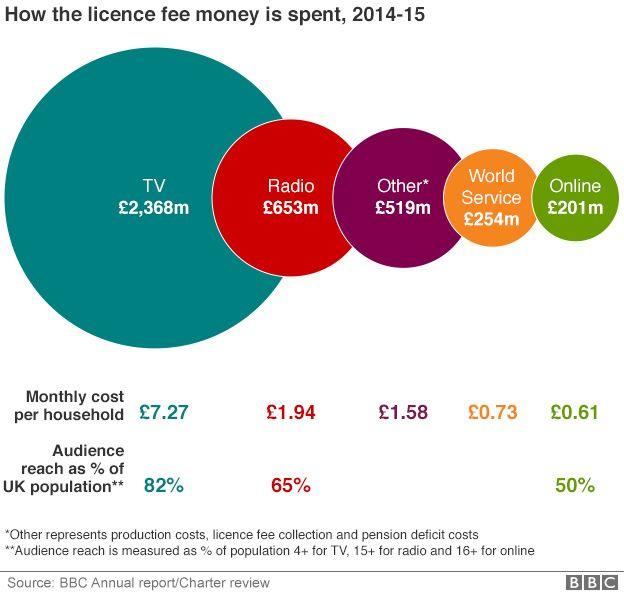
She told MSPs: "I want to be clear it is not about some desire to control the BBC and to dictate what kind of services are delivered, this is about ensuring the BBC's long term future in a way that benefits both the BBC and which benefits Scotland.
"It is a future that cannot be deemed to be meeting the needs of the UK's nations and regions unless it thinks about Scotland in a different way."
MSPs on the culture committee have already voiced concern about BBC investment in programmes from Scotland, including for the UK network.

ANALYSIS
Brian Taylor on what next for BBC Scotland
"In news, in portrayal [of Scotland], there is more to be done."
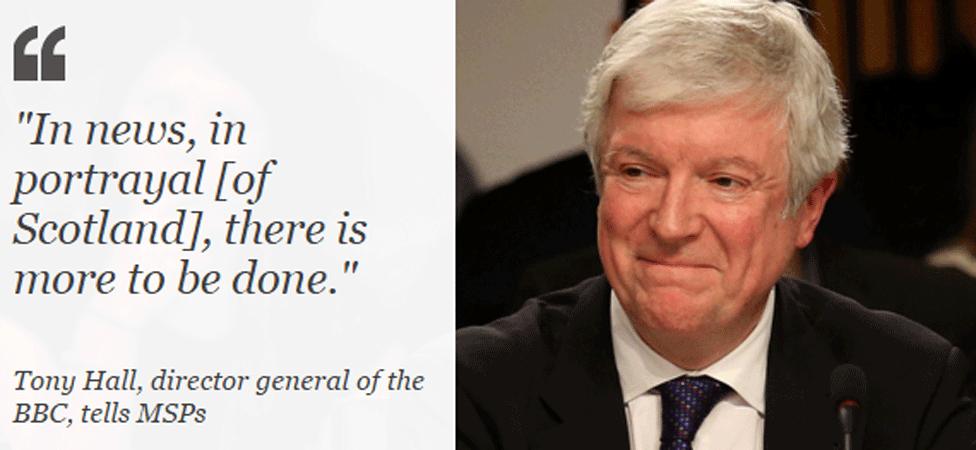
At the committee, the argument flowed back and forth. It was argued forcibly that programmes with a Scottish base contribute to jobs and development here.
However, Tony Hall acknowledged that it was now time to move to a new phase: with further power in Scotland allied to programmes which offered a more sustained and authentic portrait of Scotland.
Further, the Director General confirmed a review of news, due to report in the Spring - which might include such familiar concepts as a Scottish Six, a TV programme encompassing Scottish, UK and global news.
Ken MacQuarrie [head of BBC Scotland] was questioned about earlier ideas such as new Scottish TV and radio channels. Those, he said, had never formed part of a formal plan. They were notions around during the earliest stages of preparing for the Charter Review, itself due to be completed by the end of this year.

In September, Lord Hall set out his vision of the BBC helping to "make Britain the greatest cultural force in the world" over the course of the next charter period, which will run for a decade.
He also outlined plans to provide new versions of BBC education, news and entertainment services in Scotland, Wales and Northern Ireland.
But he warned that funding cuts would mean the loss or reduction of some BBC services.
Scottish First Minister Nicola Sturgeon has also previously called for BBC Scotland to be given more influence and a greater slice of the licence fee.
And she has called for a new BBC Scotland TV channel to be created alongside a second English-language radio station.
But opposition parties have accused Ms Sturgeon and the SNP of seeking to exert political control over the broadcaster.

What is the BBC charter and why is it important?
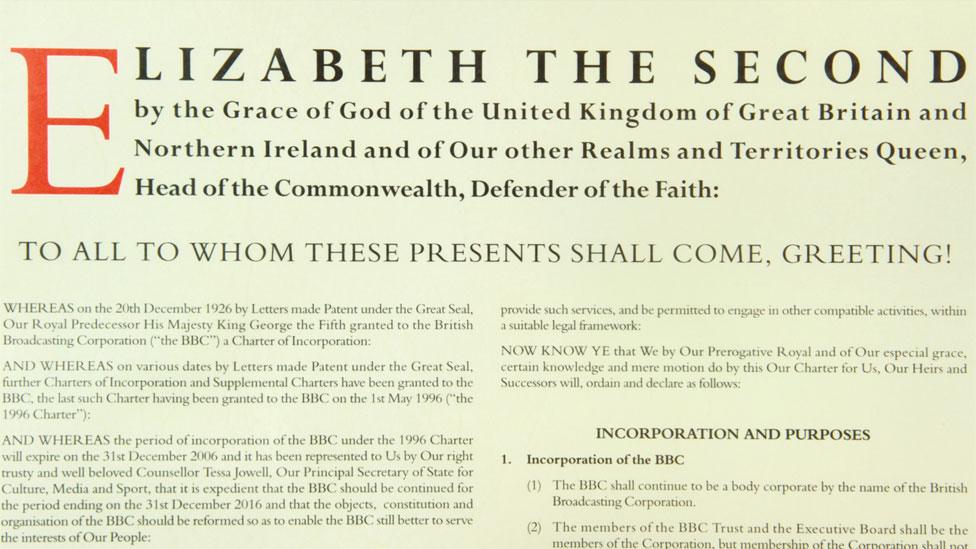
The BBC's charter was last renewed in 2007
The Royal Charter is the constitutional basis for the BBC and, as such, effectively allows the BBC to exist.
It sets out the public purposes of the corporation, guarantees its independence, and outlines the duties of the people that run it - the Trust and the Executive Board.
The first charter ran from 1 January 1927 to 31 December 1936.
The current charter states that the BBC exists to serve the public interest.
It sets out how the BBC should serve audiences through its six "public purposes" such as "representing the UK, its nations, regions and communities".
The charter runs until 31 December 2016, and the UK government has already started a review process to put in place a new charter for the next 10 years.
- Published12 January 2016
- Published12 January 2016
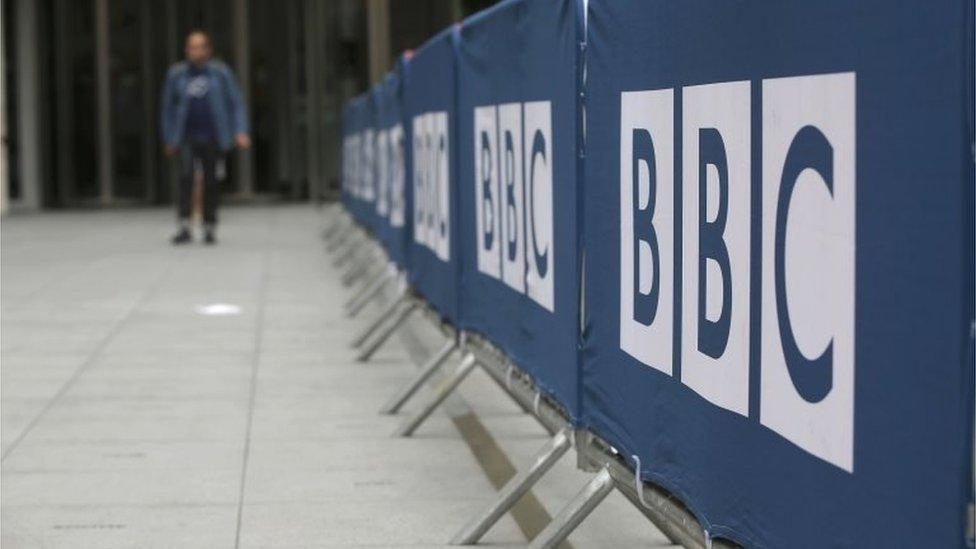
- Published7 September 2015
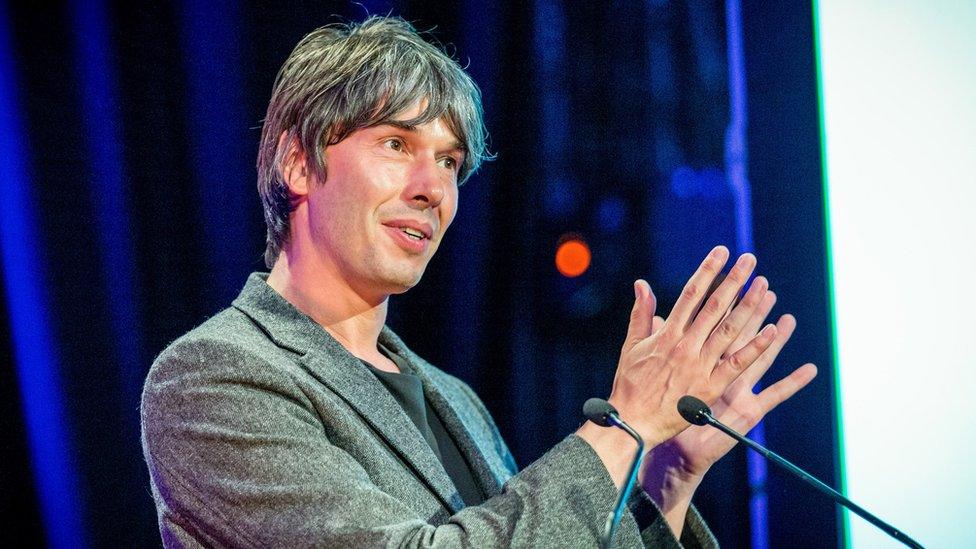
- Published27 August 2015
